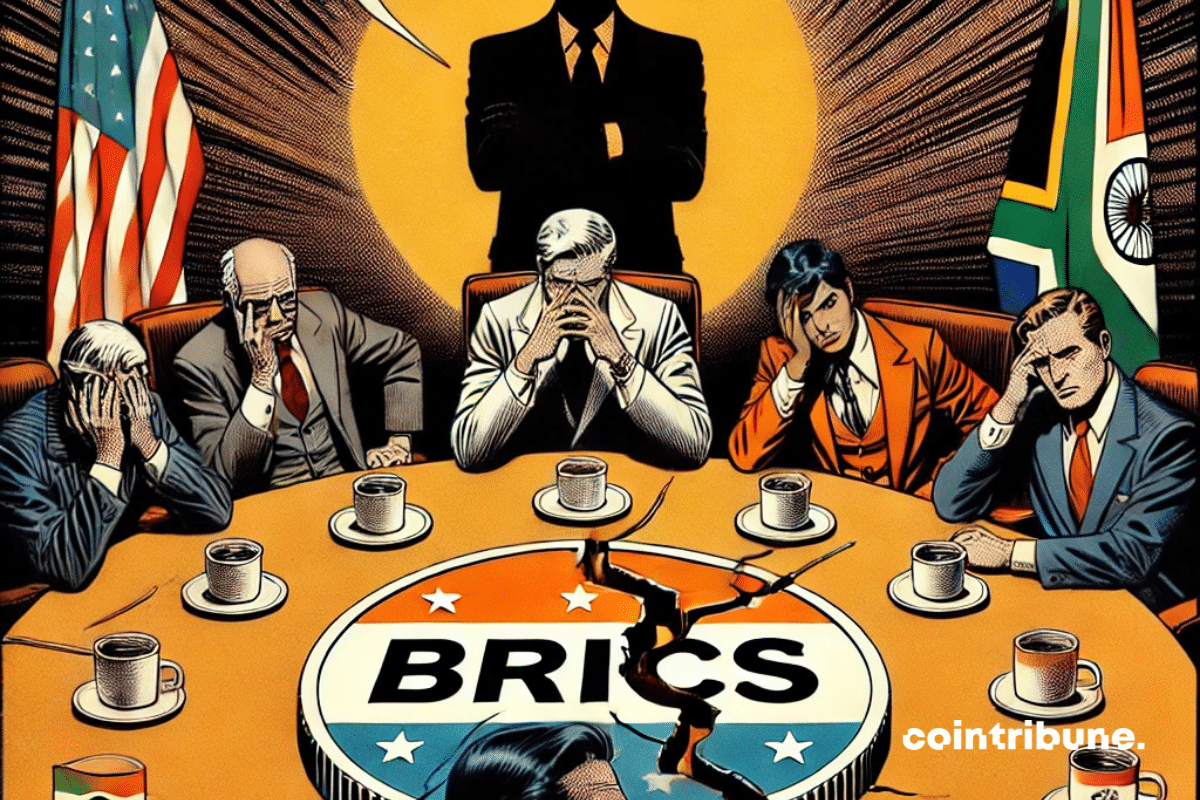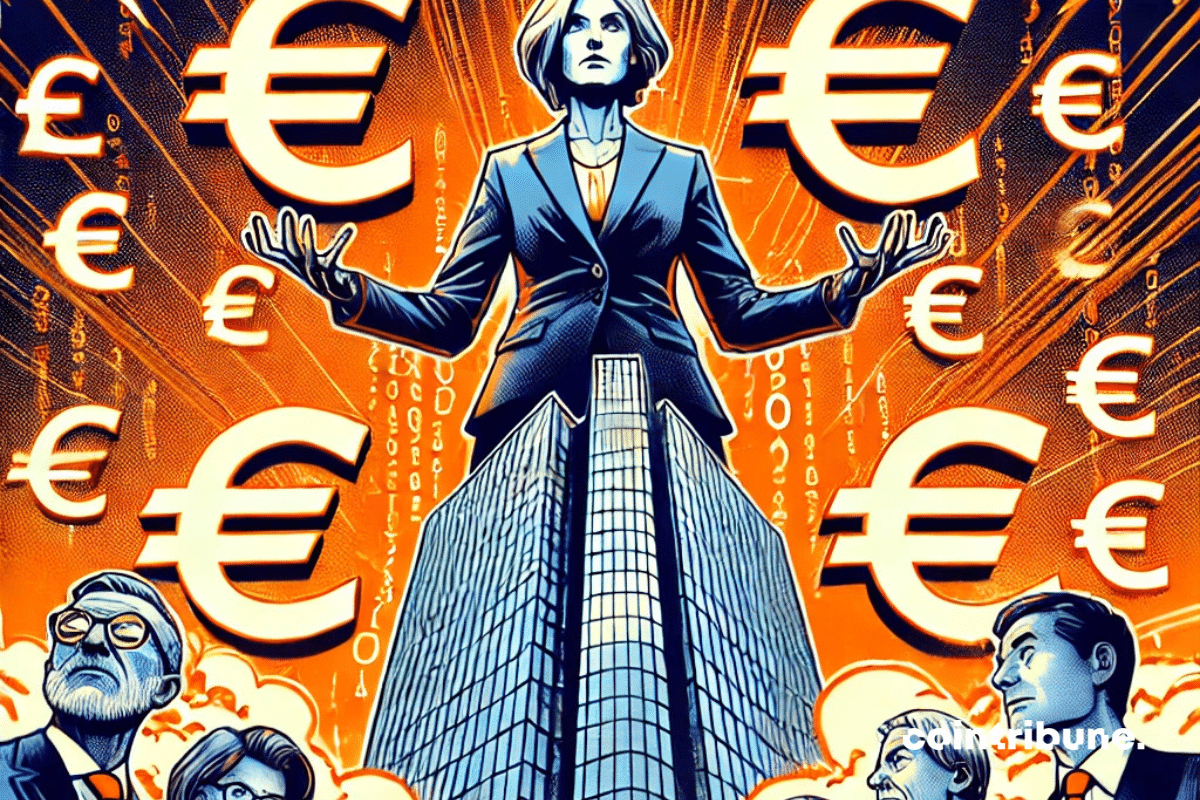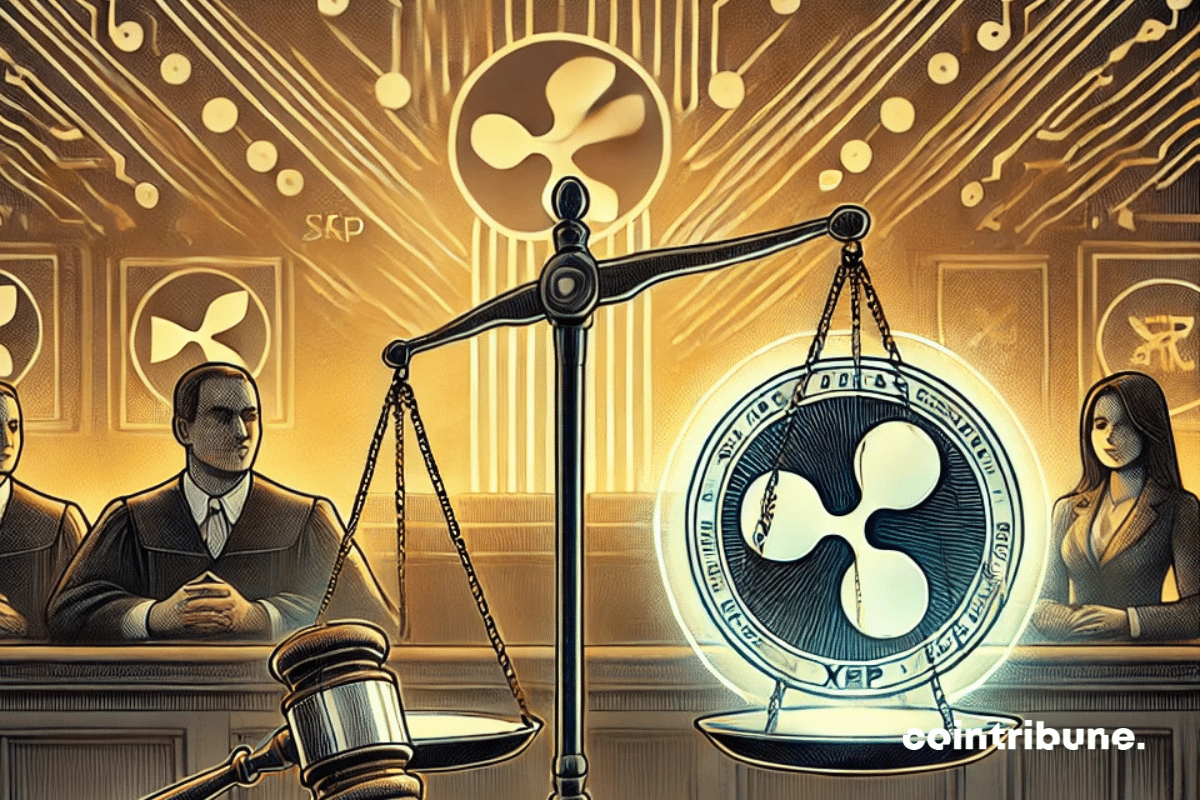The Bank of Russia has recently introduced new regulations aimed at enhancing the oversight of currency exchange operations involving digital rights. These rights, as defined by Russian law, include electronic records such as cryptocurrencies, tokenized securities, and digital tokens. This initiative aims to integrate digital assets into the traditional financial system while ensuring financial stability.
Theme Regulation
The American Federal Reserve is divided over the potential inflationary consequences of the tariff increases promised by Donald Trump. While some officials downplay the risks, others fear a resurgence of inflation in an already strained economic context.
China is at a pivotal economic turning point. As the combined effects of weak consumption, an intensified real estate crisis, and high unemployment hinder its development, Beijing has just announced an ambitious budget policy for 2025. The stated objective is clear: to stimulate domestic demand and stabilize an economy under significant pressure. To achieve these ambitions, the government plans a significant increase in public spending, coupled with a revision of its fiscal priorities. These measures, detailed during a national conference, reflect a firm commitment to support local communities, expand social benefits, and strengthen resources for struggling businesses. Such a strategy, centered around innovation and strategic technologies, also aims to revitalize trade exchanges in order to adapt debt rules. With this comprehensive approach, Beijing intends to lay the groundwork for more resilient economic growth and to address the structural challenges that hinder its trajectory.
The crypto ecosystem could enter an unprecedented transformation phase. For years, markets have followed well-established cycles dictated by the internal mechanisms of bitcoin, including the halving, which times the periods of rise and fall. Today, a large-scale political initiative is emerging, likely to disrupt these historical foundations. American Senator Cynthia Lummis has proposed the Bitcoin Reserve Act, a bill aimed at recognizing bitcoin as a strategic reserve asset for the United States. This initiative, which plans for the gradual integration of one million bitcoins into the U.S. federal reserves, is set against a backdrop of increasing economic and geopolitical rivalries. As powers like Russia and Germany also consider adopting similar strategies, this proposal raises questions. Furthermore, the implications of such an approach go beyond American borders and redefine the role of Bitcoin on the international stage, granting it an unprecedented status in the history of cryptos.
The global economic landscape is at a critical phase. Every decision by the Federal Reserve (Fed) becomes a key signal, closely monitored by investors and financial analysts. In this context, the imminent announcement of a new interest rate cut sparks keen interest. As inflation, once rampant, begins to return to more controlled levels, the Fed is considering reducing its benchmark rate once again, this time to a range of 4.25% to 4.5%. This measure, which is part of an economic stabilization strategy, leaves no market indifferent. For cryptocurrencies, this announcement fuels both hope for a more favorable monetary environment and fear of increased instability. As Bitcoin and Ethereum already face significant declines, investors question the prospects ahead.
Europe, always trailing Washington, should soon align itself by lifting the curse on bitcoin.
Shaktikanta Das, the outgoing governor of the Reserve Bank of India (RBI), expressed his optimism about the future of CBDC in the Indian economy, stating that the digital rupee could definitively replace the paper-based economy.
Recent employment data in the United States suggests a likely reduction in interest rates in December, according to Grayscale. This outlook could influence financial markets, particularly bitcoin, which may benefit from this more accommodative monetary policy. Here’s what the figures reveal.
The fall of the Michel Barnier government marks a political and economic turning point in France. While the adoption of the 2025 budget remains pending, uncertainty threatens to weigh heavily on households, businesses, and market confidence.
The nomination of the next chairman of the Securities and Exchange Commission (SEC) is central to the preparations of the new administration of Donald Trump. Paul Atkins, a former commissioner of the agency under the Bush administration, emerges as the most likely candidate, according to recent forecasts. He is known for his pro-market and pro-private sector positions. Such a possibility sparks intense debate, particularly in the context of an already strained financial regulation.
The leading American crypto exchange platform, Coinbase, announces the termination of its USDC Rewards program for users in the European Economic Area (EEA). This decision comes in the context of compliance with the new European MiCA (Markets in Crypto-Assets) regulation.
Morocco, which banned cryptocurrencies in 2017, is preparing to reverse course with a bill aimed at legalizing and regulating all digital assets. This historic decision, announced by the governor of Bank Al-Maghrib, Abdellatif Jouahri, marks a major turning point in the kingdom's policy toward digital currencies.
In a context of booming financial markets, where every macroeconomic event can redefine the balance, the upcoming week is set to be crucial for cryptocurrencies. Investors' attention is focused on key indicators such as the PCE price index, the minutes of the U.S. Federal Reserve (FOMC), and the revision of U.S. GDP. Meanwhile, the imminent expiration of over 10 billion dollars in Bitcoin and Ethereum options is expected to add to the prevailing volatility. These dynamics, which intertwine economic uncertainty and crypto issues, could significantly shape the financial landscape.
As the global economy attempts to stabilize after years of uncertainty, American public debt is drawing renewed attention. Indeed, with a level reaching 125% of GDP in 2024 and a growing budget deficit, this issue concerns international institutions, particularly the European Central Bank (ECB). Thus, recent statements from its Vice President, Luis de Guindos, emphasize the urgency of the situation and its potential repercussions on the eurozone.
DOGE: when Musk and Armstrong play the state surgeons, with fiscal scalpel and crypto syringe!
In a rapidly changing multipolar world, the strategies of major powers shape economic and political balances. Analyst Boris Mezhuyev, during a debate in Moscow, revealed a potential axis of Donald Trump's future foreign policy: directly targeting the BRICS. This strategic repositioning could profoundly redefine global alliances and impact key sectors, including finance and cryptocurrencies.
Gary Gensler, the current chairman of the SEC, has just thrown a stone into the pond as he hints at a possible departure. This announcement resonates like an earthquake in the crypto world. Indeed, his term has been marked by a strict and controversial approach to regulating these assets, with increased oversight and the application of sanctions against certain players in the sector. The announcement of this possible departure comes in a tense political context, as Donald Trump, currently re-elected, has expressed his firm intention to remove Gensler from office upon his return to the White House.
U.S. inflation, which had shown signs of easing in recent months, is on the rise again, bringing the issue of the cost of living back to the forefront of national concerns. In October, the inflation rate reached 2.6%, up from 2.4% in September, marking a turnaround in the relentless fight to stabilize prices. This resurgence of inflation comes against a backdrop of fragile economic conditions, where every change in price indices is scrutinized for its potential impact on purchasing power, monetary policy, and the political landscape.
At a time when the dollar reigns supreme in global trade, the BRICS alliance seemed determined to shake up this established order. For several months, this economic bloc had been exploring the possibility of freeing itself from the dollar and even creating a common currency to facilitate their exchanges. However, the project for a single currency has now been abandoned, a decision that marks a significant setback for the BRICS in their quest for monetary sovereignty and in their desire to challenge American dominance.
Donald Trump's election to a second term as President of the United States could redefine the balance of power between Europe and its traditional ally across the Atlantic. In the face of this political upheaval, European leaders are confronted with critical questions about the future of their security, their strategic autonomy, and their economic partnership with the United States. As Europe is already weakened by internal tensions, Trump's return rekindles fears of an American disengagement in defense matters, as well as the threat of a trade war.
In a new escalation of international trade tensions, China has officially filed a complaint against the European Union with the World Trade Organization (WTO). This action follows the EU's decision to impose significant tariffs, ranging from 8% to 35%, on electric vehicles imported from China. According to the European Union, these taxes aim to correct what is deemed unfair competition due to Chinese state subsidies. In response to this measure, China retaliates and denounces an infringement on free trade principles. This conflict arises as both economic powers attempt to position themselves as global leaders in ecological transition and technological innovation.
The introduction of the digital euro is causing a major confrontation between the European Central Bank and the EU member states. At the heart of this battle is the control of a new monetary instrument that could disrupt the balance of financial power in Europe. Nine countries, including France and Germany, are already openly opposing Frankfurt's ambitions.
As the G7 considers tapping into frozen Russian assets to support a massive loan to Ukraine, the Kremlin does not hide its concern. Through warnings from its senior officials, Russia warns of consequences that could weaken the supremacy of the dollar and redefine international monetary balances.
The global geopolitical landscape is undergoing significant changes, and the BRICS, this group of emerging powers, is at the heart of this reorganization. As economic and political tensions with the West intensify, more than thirty nations have expressed their willingness to join this alliance at the annual summit currently taking place in Kazan from October 22 to 24, 2024. In the face of Western hegemony, the BRICS aim to reshape the balance of power and free themselves from the dominance of the dollar in international trade.
The ECB bites into Bitcoin: a scathing report, sharp criticisms, and a well-felt war of interests behind the scenes.
As the United States approaches a pivotal presidential election, the budget deficit for the 2024 fiscal year has reached new highs, raising concerns about the viability of the public finances of the world's leading power. Indeed, with debt continuing to grow despite rising tax revenues, discussions around budget management have become central to the political debate.
As governments seek to maintain control over their finances and close ever-growing budget deficits, a new enemy seems to be rising in their path: Bitcoin. The crypto, with its limited supply and decentralized nature, disrupts traditional economic models and forces some actors to consider radical measures. It is in this context that the Federal Reserve Bank of Minneapolis has newly published an explosive report suggesting that to maintain ongoing deficits, governments should either tax or outright ban Bitcoin. Such a shocking statement comes as the United States struggles to contain its national debt, which is reaching record levels, and as regulation of cryptocurrencies becomes a sensitive topic.
A new twist in the Ripple vs. SEC case has shaken the community. In the midst of an ongoing legal battle, the Securities and Exchange Commission (SEC) has filed a last-minute appeal, thus reigniting a lawsuit that could define the future of cryptocurrencies in the United States. Since the historic decision by Judge Analisa Torres in July 2023, the question of whether XRP sales should be considered securities remains at the heart of the debates. The timing and arguments put forward by the SEC in this appeal have caught market players off guard, as well as the XRP community, which views it as a desperate attempt at regulation through repression.
As the global economy continues to recover from successive crises, a new announcement from the IMF reveals a mixed trend: global public debt will reach 100 trillion dollars by the end of 2024. This staggering amount, equivalent to 93% of global GDP, represents a critical point in the budgetary management of states. The world now finds itself at a crossroads where managing this colossal debt has become more crucial than ever.
Wecan continues to evolve and strengthen its ecosystem. In 2024, the partnership with WIZE, a Swiss leader in wealth management software, marks a crucial step in simplifying compliance processes for asset managers and banks. This collaboration illustrates Wecan's commitment to building a digital environment that addresses the contemporary challenges of the financial industry.





























